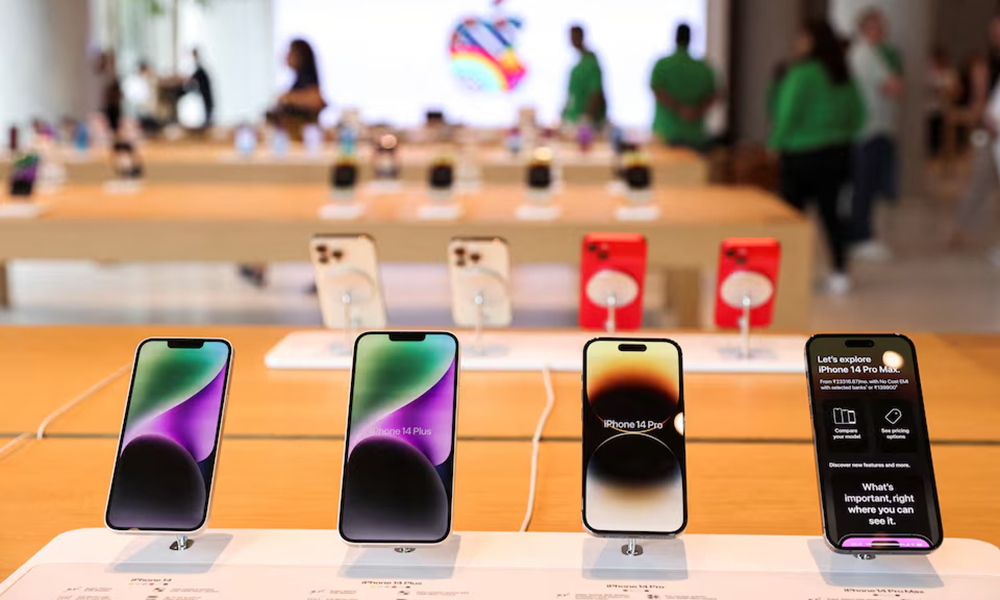Science & Technology
Apple warns of security flaw for iPhones, iPads and Macs

Apple disclosed serious security vulnerabilities for iPhones, iPads and Macs that could potentially allow attackers to take complete control of these devices.
Apple released two security reports about the issue on Wednesday, although they didn’t receive wide attention outside of tech publications, AP reported.
Apple’s explanation of the vulnerability means a hacker could get “full admin access” to the device. That would allow intruders to impersonate the device’s owner and subsequently run any software in their name, said Rachel Tobac, CEO of SocialProof Security.
Security experts have advised users to update affected devices — the iPhone6S and later models; several models of the iPad, including the 5th generation and later, all iPad Pro models and the iPad Air 2; and Mac computers running MacOS Monterey. The flaw also affects some iPod models.
Apple did not say in the reports how, where or by whom the vulnerabilities were discovered. In all cases, it cited an anonymous researcher.
Commercial spyware companies such as Israel’s NSO Group are known for identifying and taking advantage of such flaws, exploiting them in malware that surreptitiously infects targets’ smartphones, siphons their contents and surveils the targets in real time.
NSO Group has been blacklisted by the U.S. Commerce Department. Its spyware is known to have been used in Europe, the Middle East, Africa and Latin America against journalists, dissidents and human rights activists.
Security researcher Will Strafach said he had seen no technical analysis of the vulnerabilities that Apple has just patched. The company has previously acknowledged similarly serious flaws and, in what Strafach estimated to be perhaps a dozen occasions, has noted that it was aware of reports that such security holes had been exploited.
Science & Technology
Apple loses top phonemaker spot to Samsung as iPhone shipments drop, IDC says

Apple’s (AAPL.O), opens new tab smartphone shipments dropped about 10% in the first quarter of 2024, hurt by intensifying competition by Android smartphone makers aiming for the top spot, data from research firm IDC showed on Sunday.
Global smartphone shipments increased 7.8% to 289.4 million units during January-March, with Samsung (005930.KS), opens new tab, at 20.8% market share, clinching the top phonemaker spot from Apple, Reuters reported.
The iPhone-maker’s steep sales decline comes after its strong performance in the December quarter when it overtook Samsung as the world’s No.1 phone maker. It’s back to the second spot, with 17.3% market share, as Chinese brands such as Huawei gain market share.
Xiaomi, one of China’s top smartphone makers, occupied the third position with a market share of 14.1% during the first quarter, read the report.
South Korea’s Samsung, which launched its latest flagship smartphone lineup – Galaxy S24 series – in the beginning of the year, shipped more than 60 million phones during the period.
Global sales of Galaxy S24 smartphones jumped 8%, compared to last year’s Galaxy S23 series during their first three weeks of availability, data provider Counterpoint previously said.
In the first quarter, Apple shipped 50.1 million iPhones, down from 55.4 million units it shipped same period last year, according to IDC.
Apple’s smartphone shipments in China shrank 2.1% in the final quarter of 2023 from a year earlier.
The drop underscores the challenges facing the U.S. firm in its third biggest market, as some Chinese companies and government agencies limit employees’ use of Apple devices, a measure that mirrors U.S. government restrictions on Chinese apps on security grounds.
The Cupertino, California-based company in June will hold its Worldwide Developers Conference (WWDC), where it will highlight updates to the software powering iPhones, iPads, and other Apple devices.
Investors are closely watching for updates on artificial intelligence development at Apple, which has so far spoken little about incorporating the AI technology into its devices. The company earlier this year lost the crown as the world’s most valuable company to Microsoft (MSFT.O), opens new tab, Reuters reported.
Science & Technology
China launch of relay satellite Queqiao-2 for lunar probe mission successful

China National Space Administration (CNSA) said on Friday its launch of a key signal relay satellite was a “complete success” and it would serve as the communication bridge for its future lunar probe missions for years to come, state media reported.
China launched the satellite Queqiao-2, which was named after a mythological bridge made of magpies, and two miniature satellites, Tiandu-1 and Tiandu-2, on March 20.
Queqiao-2 will be used as a communications bridge between the ground operations on earth and upcoming lunar probe missions on the far side of the moon until at least 2030.
The moon’s near side always faces earth. That means data transfers from the far side are impossible because there is no direct line of sight.
Queqiao-2 researcher and developer Xiong Liang described the satellite as “the main switch” of the whole fourth phase of lunar missions, according to state television CCTV.
“Only when the main switch is flipped on, all the communications can kick off,” Xiong said.
Queqiao-2 will orbit the moon and relay signals to and from the Chang’e-6 mission, which expected to be launched in May. The robotic Chang’e-6 probe will seek to retrieve samples from an ancient basin, acquiring lunar material from the moon’s hidden side for the first time.
Queqiao-2 will also be used as a relay platform for the Chang’e-7 lunar mission in 2026 and the Chang’e-8 mission in 2028.
The functions and performance of Queqiao-2 met mission requirements and it will be able to provide relay communication services for China’s lunar exploration projects and future lunar missions for China and other countries, said the CNSA, according to CCTV.
Queqiao-2 entered its targeted elliptical orbit on April 2 after a correction midway, near-moon braking and orbital manoeuvre around the moon, CNSA said.
The satellite has successfully communicated with Chang’e 4, which was the first spacecraft to perform a soft landing on the far side of the moon and is still carrying out its exploration mission. It also communicated with the Chang’e-6 probe while it is still on the ground earlier this month.
The successful launch of Queqiao-2 comes after the failed launch of another lunar spacecraft DRO-A/B satellites, which was intended to enter the moon’s distant retrograde orbit (DRO).
China has not released any information on whether or not the satellites can be retrieved.
(Reuters)
Science & Technology
Russia aborts planned test launch of new heavy-lift space rocket

Russian space officials on Tuesday aborted the test launch of a new heavy-lift rocket from its far-eastern launch pad.
The Angara-A5 rocket was scheduled to lift off from the Vostochny space launch facility at 0900 GMT Tuesday, but the launch was aborted two minutes before, AP reported.
Yuri Borisov, head of Roscosmos state space corporation, said the automatic safety system canceled the launch after registering a flaw in the oxidizer tank pressurization system.
He said the next launch attempt was set for Wednesday.
Tuesday’s launch was to be the fourth for the Angara-A5, a heavy-lift version of the new Angara family of rockets that has been developed to replace the Soviet-designed Proton rockets.
-

 Sport4 days ago
Sport4 days agoACL fever grows as fixtures finalized
-

 World4 days ago
World4 days agoUS will not take part in any Israeli retaliatory action against Iran
-

 Latest News4 days ago
Latest News4 days agoOver 50 people dead in traffic accidents over Eid
-

 Latest News4 days ago
Latest News4 days agoUS identifies Kabul airport suicide bomber
-

 Business4 days ago
Business4 days agoAfghanistan-Kazakhstan chamber of commerce opens in Herat
-

 Latest News4 days ago
Latest News4 days agoGood rains enable DABS to increase power production in Kabul
-

 World3 days ago
World3 days agoIsraeli military vows response to Iran attack as calls for restraint mount
-

 Latest News3 days ago
Latest News3 days agoPakistani police give Afghans in Balochistan one day to leave

























